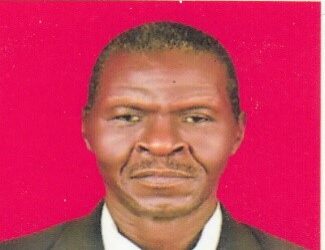By Gamma Hassan Oscas
In recent years, South Sudan has experienced a troubling pattern of frequent reshuffles, appointments, sackings, and reappointments within key government financial institutions, particularly in the Ministry of Finance and Economic Planning, the Bank of South Sudan, and the National Revenue Authority (NRA). This unsettling trend has raised serious concerns about the potential avenues and opportunities for corruption and the looting of state coffers. Over the past few years, numerous ministers of finance, governors of the central bank, and top officials in financial institutions have been in a revolving door of appointments, with most serving no more than a year in their respective offices. This opinion seeks to provide an analysis and to scrutinize the manner and criteria of these appointments, question their adherence to legal provisions, and delve into the unsettling consequences of such frequent changes in leadership.
It is an unfortunate reality that South Sudan has witnessed the appointment and sacking of over ten Bank Governors and finance ministers in recent years. The same officials who were ousted from their positions have, at times, made surprising comebacks to the very dockets they were previously removed from. This volatile situation has left many wondering about the rationale behind these decisions. What becomes abundantly clear is that these frequent changes have had little, if any, practical impact on the financial management of the country’s resources. It begs the question: are these changes driven by the need to find competent individuals who can effectively lead these institutions, or are they simply political rewards granted to certain individuals, allowing them to enrich themselves through unchecked looting?
One of the most troubling aspects of these frequent reshuffles is the lack of transparency surrounding the appointments and sackings of key officials. In most cases, no clear reasons are given for the removal of these leaders by the appointing and relieving authorities. South Sudanese citizens are often left in the dark, with the only information available being that “so and so has been relieved, and another is appointed.” This lack of transparency erodes trust in the government’s decision-making processes and raises suspicions of ulterior motives behind these changes.
It is worth noting that none of the officials who have been relieved of their duties in these institutions have ever been charged with corruption or any moral offenses. This is a puzzling aspect of the situation, as it begs the question of why these individuals are being removed if there are no allegations or findings of wrongdoing against them. The absence of accountability further deepens the skepticism surrounding these frequent reshuffles.
Perhaps one of the most telling signs of corruption in this context is the rapid improvement in the lives of these leaders immediately following their appointments. Some individuals embark on significant construction projects and investments, despite their official monthly salaries being grossly insufficient to fund such endeavors. This dramatic shift in their financial situations is a clear indication that they view their appointments as opportunities for personal enrichment, knowing that they might be removed from their positions at any moment. Consequently, their focus shifts towards amassing personal wealth rather than implementing policies and programs that could benefit the institutions they are meant to lead.
The frequent changes in leadership within South Sudan’s key financial institutions inadvertently create an incentive for corruption. Leaders who know that their time in office is uncertain may prioritize looting state resources as a means of securing their future. This fear of imminent removal drives them to concentrate on accumulating personal wealth, which, in turn, exacerbates the vicious cycle of corruption. The lack of long-term stability in these positions further erodes the potential for meaningful reforms and development within these institutions.
Another disconcerting aspect of these frequent reshuffles is the recurrence of the same individuals in various government positions. Some officials who are removed from one role are reappointed to different positions or even the same position they were previously ousted from. This recycling of leaders not only raises questions about the availability of qualified and capable individuals but also reinforces the perception that these changes are driven by political considerations rather than merit.
The Impact on the Economy
The consequences of this perpetual cycle of appointments and sackings are far-reaching and detrimental to South Sudan’s economy. The lack of stability in key financial institutions hinders the implementation of coherent economic policies and strategies. It discourages potential investors who are wary of dealing with a constantly changing leadership landscape. Furthermore, the consistent focus on personal enrichment by officials diverts resources away from critical development projects and essential public services, ultimately affecting the lives of ordinary citizens.
The Way Forward: Transparency and Accountability
To address this critical issue, South Sudan must prioritize transparency and accountability in the appointments and sackings of key officials in government institutions. It is essential to establish clear criteria and procedures for these decisions and to ensure that they align with legal provisions and merit-based principles. Providing justifications for removals, when necessary, will help rebuild trust among citizens and reduce speculation about hidden agendas.
Furthermore, South Sudan must work to strengthen its institutions to withstand the pressures of political patronage and corruption. This includes investing in the training and development of a professional civil service that can effectively manage the country’s financial affairs regardless of changes in political leadership.
In conclusion, the frequent reshuffles, appointments, sackings, and reappointments within South Sudan’s key financial institutions have created a toxic environment that encourages corruption and undermines the country’s economic development. The lack of transparency, accountability, and stability in these appointments erodes trust in the government and hinders progress.
It is crucial for South Sudan to break free from this vicious cycle and prioritize the long-term interests of its citizens. Merit-based appointments, clear criteria for removals, and a commitment to transparency and accountability are essential steps towards achieving this goal. Only through these measures can South Sudan hope to build a strong, stable, and corruption-free financial sector that benefits all its citizens.
The author of this opinion piece is an advocate and can be reached on email at: oscarsgama@gmail.com




